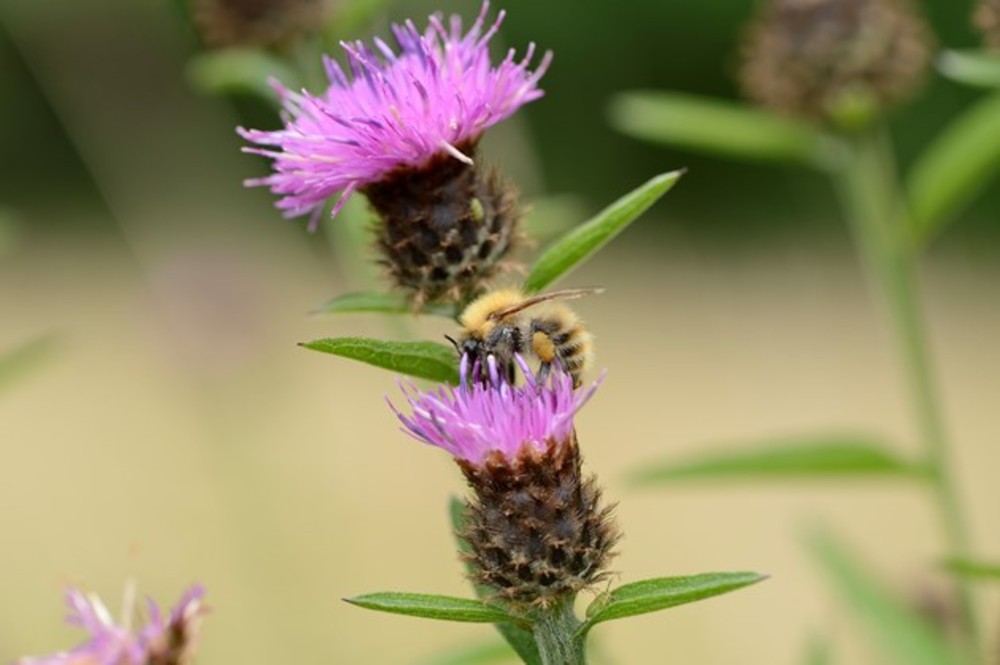| Considerable progress was made to help bees, butterflies and other pollinators thrive across Scotland in 2019, a new report shows. |
| Scottish Natural Heritage (SNH) has published details of work being carried out by the organisation and more than 30 partners towards delivering the Pollinator Strategy for Scotland.
The aim of the strategy is to make Scotland more pollinator-friendly, halting and reversing the decline in native pollinator populations. From the John Muir Pollinator Way to roadside verges in Dundee and Aberdeen, green roofs in Edinburgh to planting in Kirkwall, the report details progress across the country to ensure a nature-rich future for our pollinators. During the year around 50 new wildflower meadows were established, with projects also working to create bee and bug houses, improve habitats, plant pollinator-friendly trees and shrubs and transform roadside verges, brownfield sites and railway routes. The report also highlights progress in raising awareness and understanding of pollinators, including work with the farming sector, safeguarding bee health and the provision of identification courses, advice and guidance.  SNH projects in 2019 included the launch of five new pollinator trails on National Nature Reserves and the development of guidance and advice for the construction and planning sector. SNH Chief Executive Francesca Osowska said: “We’re pleased to report that considerable progress was made in 2019 towards making Scotland a more pollinator-friendly place due to the fantastic work of a wide range of organisations and individuals up and down the country. “Transforming our towns and cities into greener and healthier spaces is good news for pollinators and people alike, and the clear message is that we can all do our bit to help pollinating insects thrive. “No matter how big or small our own gardens and community spaces, if we take action to provide food and shelter for pollinators we can help these vital insects and in doing so ensure a nature-rich future for Scotland.” |
Deadline News is the leading independent news and picture agency in Scotland.
Supplying content to print, broadcast and online colleagues across the globe since 2000, we cover stories throughout the UK but concentrate largely on the news footprint of Central Scotland.
Our dedicated team of journalists and photographers cover everything from breaking news, politics and human interest stories to celebrity appearances, court reporting and sport.

